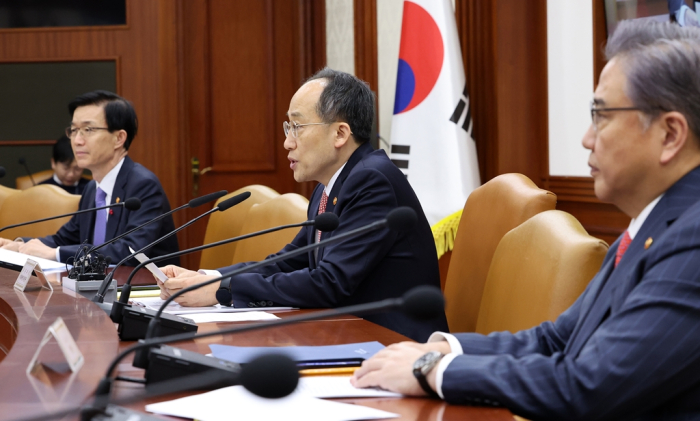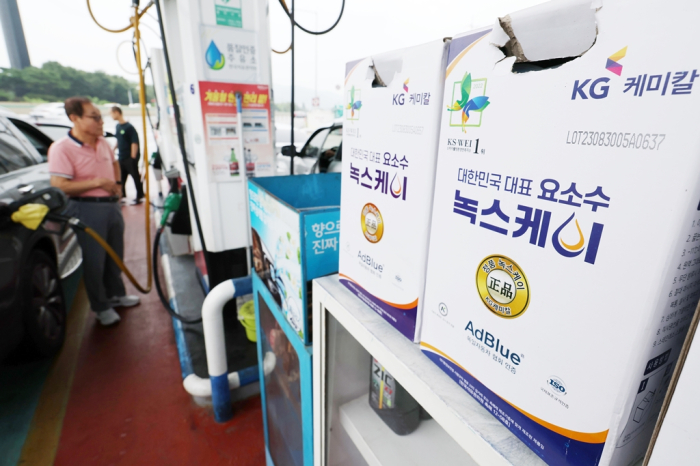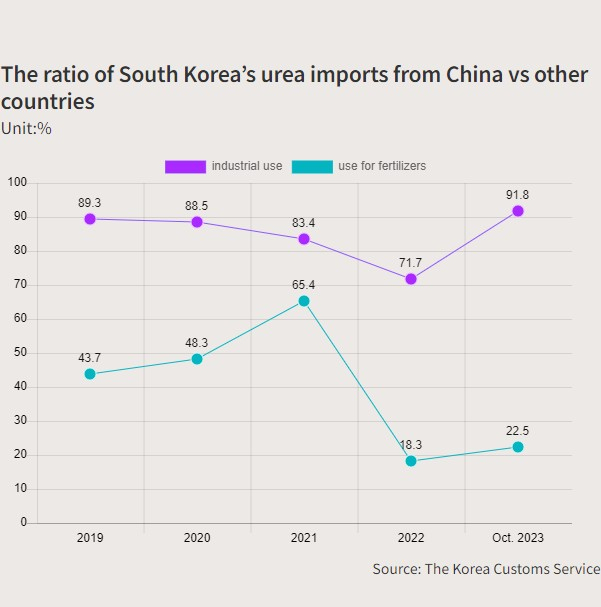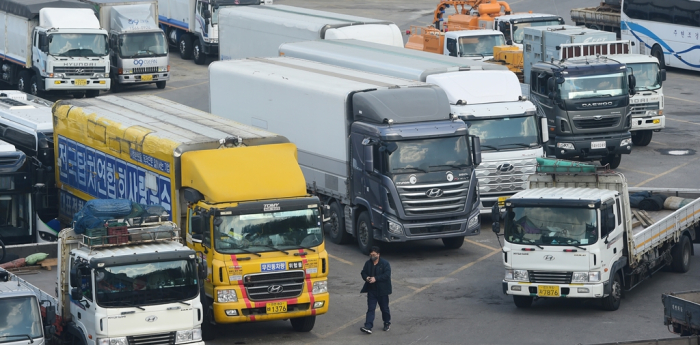Supply chain
South Korea to launch $7.6 bn supply chain fund, make urea locally
Seoul is working out a series of measures to address public concerns about a urea shortage following Beijing’s export halt
By Dec 11, 2023 (Gmt+09:00)
4
Min read
Most Read
LG Chem to sell water filter business to Glenwood PE for $692 million


Kyobo Life poised to buy Japan’s SBI Group-owned savings bank


KT&G eyes overseas M&A after rejecting activist fund's offer


StockX in merger talks with Naver’s online reseller Kream


Mirae Asset to be named Korea Post’s core real estate fund operator



South Korea plans to set up a supply chain stabilization fund of up to 10 trillion won ($7.6 billion) to effectively cope with sudden supply disruptions to key materials used in various industries.
The government also said on Monday it plans to have Korean companies produce urea, a substance used in diesel vehicles and fertilizers, locally to avoid a repeat of a supply crunch of the chemical in 2021, when the country’s logistics systems were paralyzed.
After a meeting of economy-related ministers earlier in the day, Finance Minister Choo Kyung-ho said the government will launch a supply chain committee under the ministry by the end of June.
Made up of government officials and industry experts, the committee will select key raw materials and industry items essential for the country and designate them as national security items.
The finance ministry and the Ministry of Trade, Industry and Energy have been managing about 200 such materials as national security items since December 2021.
In addition to that, the ministries plan to add extra items, which heavily rely on specific countries such as China, to the list, which will be drawn up by the end of next year.

Monday’s government decisions are a follow-up to the passage of the Supply Chain Stabilization Basic Law for National Economic Security at the National Assembly last Friday.
SUPPLY CHAIN FUND, SIMILAR TO COVID-19 FUND
The finance ministry said the supply chain stabilization fund, aimed at financially supporting domestic firms in diversifying their source of imports and facility investment, will be launched by the Export-Import Bank of Korea.
With a state guarantee, the bank will issue supply chain fund bonds to raise funds.
The supply chain stabilization fund will be similar to the 40 trillion won fund that the government set up in 2020 to support major industries, including aviation, in countering the COVID-19-caused economic slowdown.

The government originally planned a 5 trillion won supply chain fund, but is now considering raising the size to 10 trillion won.
“We are considering expanding the guarantee limit as global supply chain crises are occurring one after another,” said a senior government official. "The size of the fund will be determined after the list of economic security items is finalized."
The government move follows China’s decision last week to halt the customs clearance process for urea bound for Korea.
Korean companies reported their imports of the emissions-reducing chemical were taking unusually long to pass through Chinese customs. Some even reported a complete halt.
The issue has raised concerns among Korean officials and industry watchers of a repeat of 2021's supply crunch when China effectively halted exports of urea – a type of nitrogen used as fertilizer in agriculture as well as to curb diesel and industrial emissions.
The ban triggered panic buying among Korean drivers of diesel cars and trucks as they were required to use urea solutions to cut emissions. They resorted to government rations while officials vowed to secure alternative suppliers.
The government said last Wednesday it plans to offer financial support to domestic companies when they import urea, a substance used in diesel vehicles and fertilizers, from countries other than China.
Korea imports over 90% of its urea supply from China because it is cheaper and easier to buy from the neighboring country rather than from as far as Saudi Arabia, which makes high-quality urea products. Korea also imports the chemical from Japan and Vietnam.

DOMESTIC PRODUCTION OF UREA UNDER CONSIDERATION
The trade and industry ministry said on Monday it will conduct a feasibility study on the production of urea in Korea next month.
The idea of locally producing urea, known as diesel exhaust fluid (DEF) when used in diesel trucks, was floated after the 2021 crisis but was scrapped because domestic firms were reluctant to make it, citing higher production costs compared to Chinese imports.
Lotte Fine Chemical Co., Korea’s top urea maker, ceased its production in 2011.
The ministry plans to help domestic companies diversify their urea purchase channels away from China by offsetting the price differences caused by higher logistics costs. It will provide financial aid to Korean firms by the end of April, when the supply chain stabilization is expected to launch.
The finance ministry said it will also extend the tariff quota on urea to the end of 2024, originally set to expire by the end of this year. As a result, import taxes on urea products from China, Indonesia and Saudi Arabia will be exempt until the end of 2024.
Despite China’s recent suspension of its urea exports to Korea, the ministry said urea prices across Korea were nearly the same as before the Beijing move.
With about 10,000 tons of urea imports signed recently with a country other than China, Korea’s current urea reserves are sufficient for 4.3 months, up from 3 months at the end of November, it said.
The ministry said the government also plans to release 1,930 tons of urea held by the Public Procurement Service this month to ease concerns about a supply crunch.
Write to Kyung-Min Kang and Han-Shin Park at Kkm1026@hankyung.com
In-Soo Nam edited this article.
More to Read
-
 Supply chainSouth Korea to support urea purchases outside China, boost reserves
Supply chainSouth Korea to support urea purchases outside China, boost reservesDec 06, 2023 (Gmt+09:00)
3 Min read -
 Supply chainChina’s urea halts raise specter of another logistics crisis in Korea
Supply chainChina’s urea halts raise specter of another logistics crisis in KoreaDec 04, 2023 (Gmt+09:00)
3 Min read -
 Supply chainDeepening diesel exhaust fluid crisis puts Korea’s key industries at risk
Supply chainDeepening diesel exhaust fluid crisis puts Korea’s key industries at riskNov 05, 2021 (Gmt+09:00)
6 Min read -
 Supply chainUrea crisis lays bare South Korea’s heavy dependence on China
Supply chainUrea crisis lays bare South Korea’s heavy dependence on ChinaNov 14, 2021 (Gmt+09:00)
4 Min read -
 Supply chainDiesel exhaust fluid shortage threatens Korea’s supply chain
Supply chainDiesel exhaust fluid shortage threatens Korea’s supply chainNov 03, 2021 (Gmt+09:00)
2 Min read
Comment 0
LOG IN


